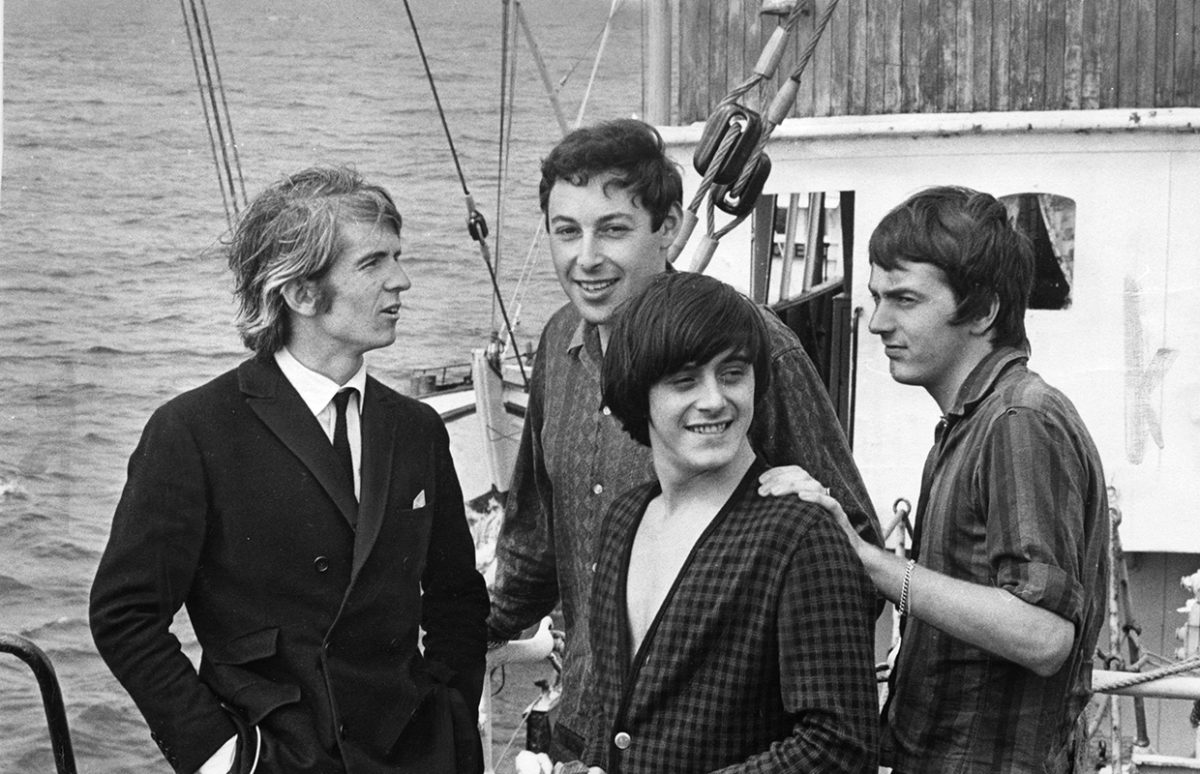1964 was the height of the Swinging Sixties in the UK. The Beatles and The Rolling Stones were topping the charts. But their music was barely played on the radio. So Ronan O'Rahilly decided to start Radio Caroline, a "pirate" radio station on a ship in the North Sea.
All the British radio stations were run by the BBC, and its output of programming for teen pop and rock fans was limited to a few hours a week of "middle-of-the-road" music. Fans looking for more innovative music, especially rock and rhythm 'n' blues from the U.S.A. tried turning to Radio Luxembourg, but reception wasn't good from a station transmitting so far away.
Ronan O'Rahilly (left, above) was an Irish agent for bands and actors in London. When he couldn't get the BBC to play his artists' records, he decided to launch his own radio station. He installed a group of DJs on a ship and they transmitted music all day and night, much to the joy of music fans.
The station didn't have a broadcasting licence, and soon drew the ire of the British authorities. It was also emulated by another dozen stations. In 1967, the Marine Broadcasting Offences Act was passed, outlawing the pirate stations on the grounds that they were not paying royalties to artists, and that their broadcasts could interfere with emergency channels. The same year, the BBC launched Radio One, its pop-music channel, and poached several of the DJs from the pirate stations. Caroline continued broadcasting from ships until 1991. It also served as a model for the non-BBC, commercial radio stations that followed.
Good Morning, England
The Radio Caroline adventure was immortalised in the 2009 film The Boat that Rocked by Richard Curtis. Sex, drugs, rock 'n' roll mixed with seasickness and shipwrecks, not to mention the tension created by cooping up some big personalities in a small, floating space.
In 2017, Radio Caroline was awarded a legal licence to transmit on a Medium Wave frequency. History doesn't record what O'Rahilly, who was suffering from dementia, thought about this ironical twist of fate. When he died on 20 April, actor George Lazenby reminisced about the man who had been his agent. O'Rahilly was so anti-Establishment, he persuaded Lazenby not to sign on for a series of James Bond films after the first, On Her Majesty's Service. "I'd be in danger of becoming part of the Establishment. Something he rebelled against," remembered Lazenby.
There is a downloadable audio documentary about O'Rahilly on the Radio Caroline home page.

You'll find more about pirate radio and the BBC in Shine Bright Terminale File 3: Radio Star in the UK.
Copyright(s) :
Daily Mail/Shutterstock






